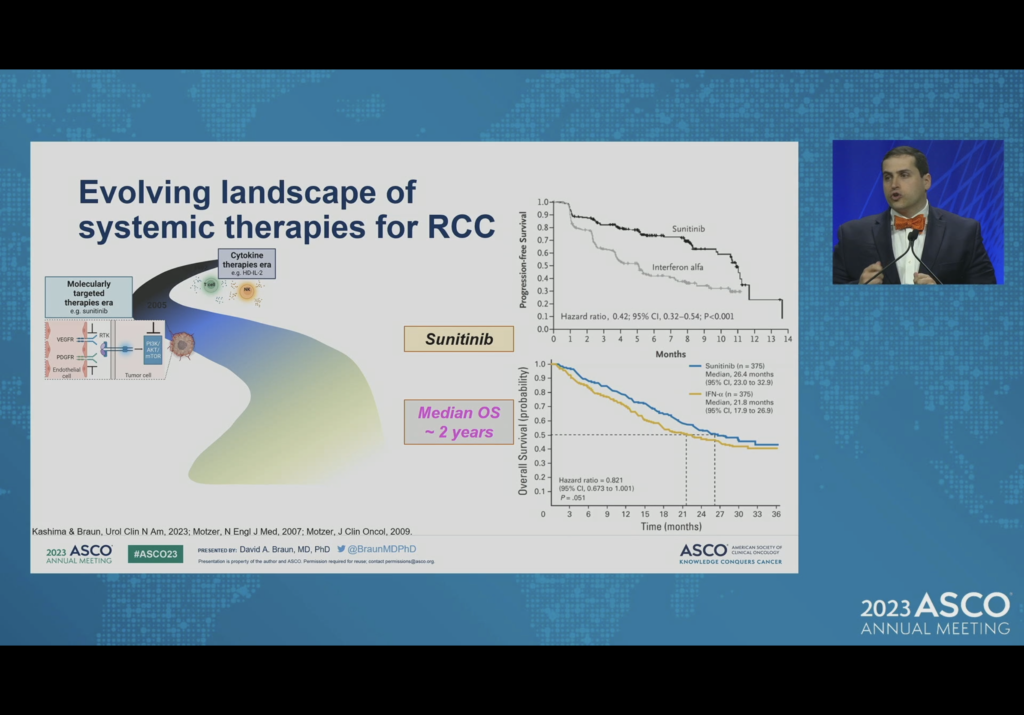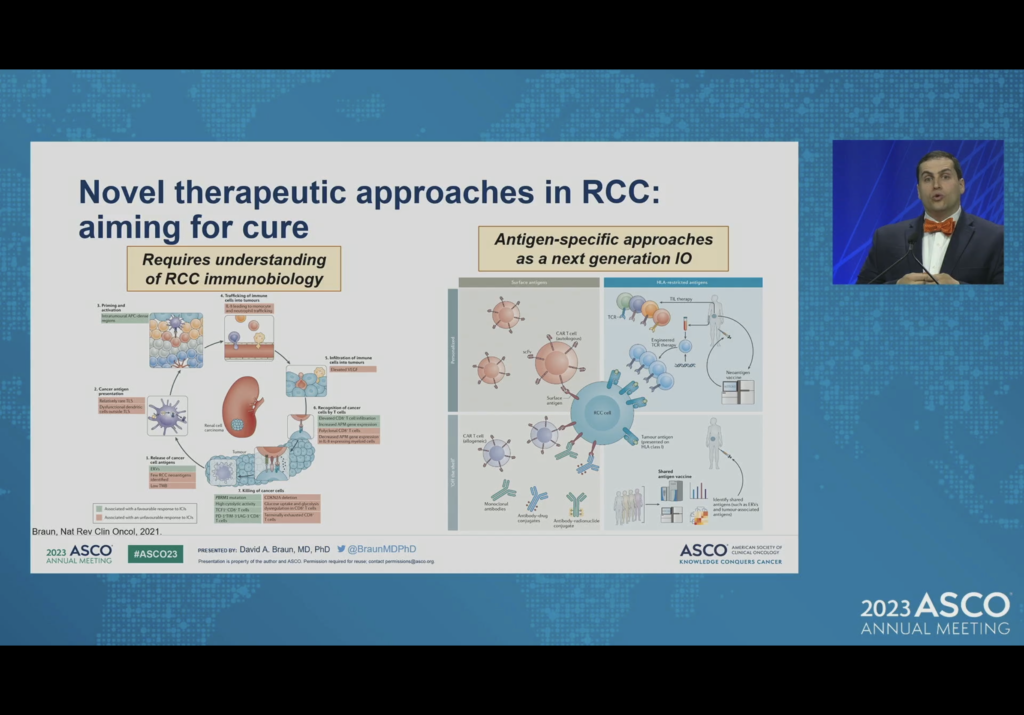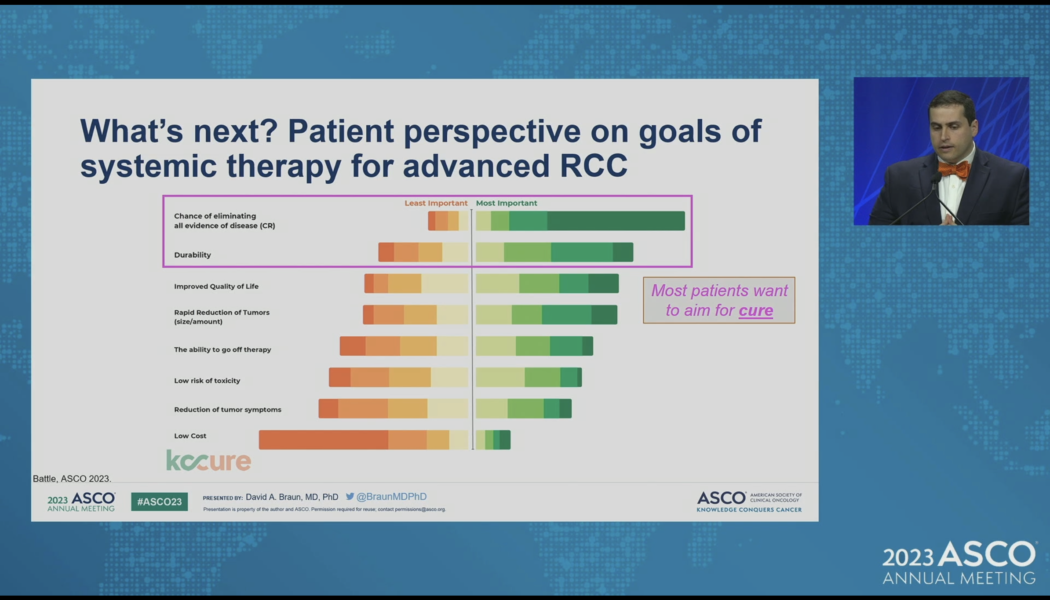What do kidney cancer patients want from their therapy? They want a cure. Let’s Aim for a Cure.
The big news for kidney cancer doctors at ASCO 2023 may have involved updates from combination trials including CONTACT-03, KEYNOTE426, and CLEAR. For patients, I would say that the big news was this call to action from Dr. David Braun at Yale Cancer Center. Aim for a Cure!
Braun did a masterful job of highlighting just how far we have come in kidney cancer – starting with the cytokine era in the 1980s to molecularly targeted agents in the early 2000’s, the first approval of a checkpoint inhibitor in 2015 to the era of combination therapy today.

Since the approval of sunitinib in 2006 – the median overall survival for kidney cancer has more than doubled. That is news to celebrate. But patients still want and deserve more from their therapy – and Braun did a great job of bringing the patient voice to the big screen by highlighting KCCure data.
KCCure – Patient Perspectives
In 2019, we first posed this question to patients with metastatic disease: What is the most important desire or outcome you want to see from treatment? Overwhelmingly, patients selected “complete eradication of disease” followed by durability of treatment. In 2022, we asked the same question again – and we got the same answer. Patients want their disease to be gone – and they want it to stay gone. They want to be cured.
Each time I present this data – I inevitably get this question from doctors: “Don’t you think that some patients who “can’t” be cured want something else?” If we look at the data – even patients who have had multiple lines of therapy remain hopeful for a cure. A consistent refrain heard from patients is, “even if there isn’t a cure for me now – I hope there are drugs to keep me alive long enough for a cure to be found.” Yes, undoubtedly patients want treatment that is less toxic if they have to remain on therapy – but they wouldn’t need therapy if they were cured.
Each time I present this data – I inevitably get this question from patients: “Do we really need survey research to prove to doctors that patients want a cure?” This is complicated – but the answer is yes. Medicine is data driven. It’s easy for scientists to get wrapped up in their own work and to make assumptions about what patients want to support their efforts. “Patients want more time, right?” “Patients want better drugs that are more tolerable, right?” and of course, the answer to those questions is also yes. But those things might not be the most important things patients are looking for. Sometimes, patient driven evidence is needed to provide a wake-up call and redirect resources to where they are needed most.
More patients are achieving complete responses – and most patients are surviving longer. We can celebrate this success – while also recognizing that we still haven’t achieved what every patient hopes for. The next era should be less about combining things that we already know and aiming for incremental advances. Let’s shift the focus to novel therapeutics in RCC – treatments that AIM for a cure.










